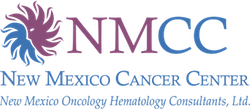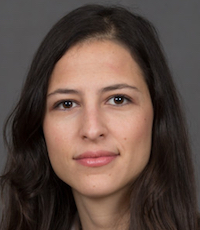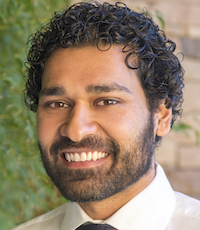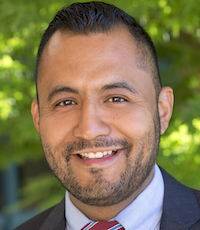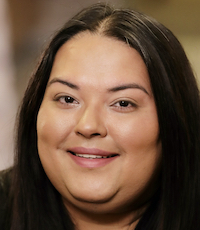Medical Minute
We are very pleased to be able to bring you the Medical Minute, one-minute vignettes about topics of common interest, narrated by medical experts at the New Mexico Cancer Center. Listen to the audio recording while you read the written transcript. The vignettes below are in the order they were made. The list on the left is alphabetical by description – click on any topic to go directly there. We will be extending the Medical Minute to additional topics as new audio files become available, so please keep checking back over time.
Additional information about any of the information provided below is available by calling NMCC at (505) 842-8171. Sincere thanks to KHFM 99.5 Classical Public Radio for producing the audio recordings and making them available.
Blood Clots - Deep Vein Thrombosis, Pulmonary Embolism
I'm Dr. Randy Adair, and I manage the anticoagulation service at New Mexico Cancer Center. A deep vein thrombosis is the blood clot that forms either spontaneously or for a known cause in the legs or in the lungs where it's called a pulmonary embolism. Some known risk factors for everyone are: age over 40, obesity, recent surgery, hormone therapy and varicose veins. The treatment is anticoagulation for a period of 3 to 12 months. Our work at the New Mexico Cancer Center is to help work through the questions of: what was the cause of the clot, including genetic factors; how long to treat and with what drug, and the best ways to prevent a future clot. The good news about anticoagulation is that we have better, safer drug choices than Coumadin, that are very user-friendly and more effective.
Lung Cancer – Early Screening
I’m Dr. Kara Bucci, radiation oncologist at New Mexico Cancer Center. Yearly low-dose screening CT scans can decrease the risk of dying from lung cancer in current or former smokers, according to the American Cancer Society. Great advances have been made in the treatment of lung cancer over the last several years. However lung cancer remains the leading cause of cancer related deaths in America, often because lung cancer presents in an advanced stage. Early detection of lung cancer with low-dose screening CT scans increases the chance that the cancer will be discovered in an early stage when it is more likely to be curable. If you have smoked one pack of cigarettes per day for 30 years or more, or two packs per day for 15 years or more, even if you have quit within the last 15 years, you’re eligible for a low-dose early CT scan.
Cancer Genetic Testing
Hello, My name is Annette Fontaine, a specialist in cancer genetics. Did you know cancer genetic testing as recommended by the national comprehensive cancer network can be life-saving? If you have been diagnosed with cancer before age 50, you may have a genetic mutation that caused your cancer. If you have several family members diagnosed with cancer before the age of 50, you may be at risk of developing cancer yourself. Knowing that you have a genetic mutation allows you to qualify for high risk screening. If you have increased risk for breast cancer you may be eligible for breast MRI in addition to mammograms. An increased risk for colon cancer my allow more frequent colonoscopy. The cancer risk may extend your your siblings and children, so testing helps protect your entire family. More information on genetic counseling and testing is available at New Mexico Cancer Center.
Skin Cancer – Superficial Radiation Therapy
Hello, I am Dr. Susan Guo, a radiation oncologist at New Mexico Cancer Center. Did you know that 3 million people are diagnosed with non-melanoma skin cancer in the United States each year? Squamous cell carcinomas and basal cell carcinomas of the skin make up the most common cancer in the U.S., more than breast, prostate, lung, and colon cancers combined. Did you also know that there are other options besides surgery for skin cancer? Radiation therapy is a treatment of skin cancer that is often done using a beam of low energy x-rays called superficial radiation therapy. This technology limits the dose to the skin and minimizes damage to surrounding structures. This treatment is recommended especially for patients who are elderly, on anticoagulation, or diabetic.
Breast Cancer – Neoadjuvant Therapy
My name is Dr. Sofia Palacio. I’m a hematologist-oncologist at New Mexico Cancer Center. Did you know that there are treatments for breast cancer available before surgery called neoadjuvant therapy? There are two types of neoadjuvant therapy that are recommended to patients before surgery: chemotherapy and endocrine therapy. Both these treatments can lead to the shrinkage of tumors in the breast and under arm which may allow for less extensive surgery. Once the lump is removed, a pathologist assesses the response to therapy. A complete response occurs when a tumor shrinks after neoadjuvant therapy and no trace is found of remaining cancer cells. For patients who don’t achieve a complete response, the oncologist might then recommend additional therapies after surgery.
Clinical Research Trials
Hi, I am Pranshu Bansal, medical oncologist and director of clinical research at New Mexico Cancer Center. Clinical research pertains to well-designed clinical trials that offer patients treatment options that are not yet FDA approved, but have shown potential to either improve on the current standard of care, or offer an alternative to the current standard of care. Clinical trials go to extensive review boards before they are offered to patients. One of the primary objectives is to ensure patient safety, with very vigorous standards. Sometimes these trials offer new and potentially better treatment options at an earlier stage of a patient’s cancer journey, in turn helping the patients. Every patient should have a robust discussion with their oncologist in regards to their options, as far as clinical trials go.
Nutrition in Cancer Treaatment
Hello. I’m Dr. Jose Avitia, and I’m a cancer specialist at New Mexico Cancer Center. According to Stanford Health, nutrition can play in important role in cancer treatment, recovery and prevention. Careful food choices can help to support your immune system in your fight against cancer. Speaking to your doctor can help you make healthy choices about nutrition. Your doctor can also answer your questions about supplements that may be helpful in achieving and maintaining good health.
Blood Disorders – White Cells, Hemoglobin & Platelets
Hello, I’m Dr. Ateffa Choudhury, a hematologist specializing in blood disorders at New Mexico Cancer Center. Your primary care provider may order blood work that includes a complete blood count known as a CBC with your annual physical. A CBC evaluates three main things: one, your white cells that protect you against infection; two, your hemoglobin that carries oxygen to cells all over your body; and three, your platelets that help your body clot and stop bleeding if you are injured. Did you know that having persistently high levels of platelets can indicate inflammation, iron deficiency, or even a blood disorder called essential thrombocythemia? While essential thrombocythemia is rare it is important to diagnose as it can increase your risk of having blood clots, strokes, or even heart attacks. In some people, platelets can be so high at over a million, it can increase your risk of bleeding.
